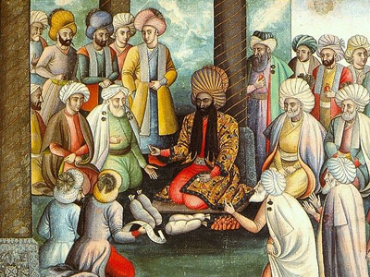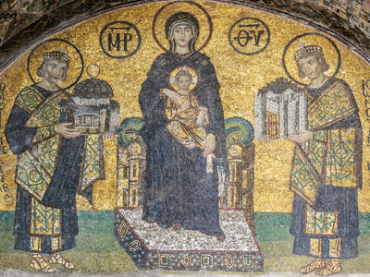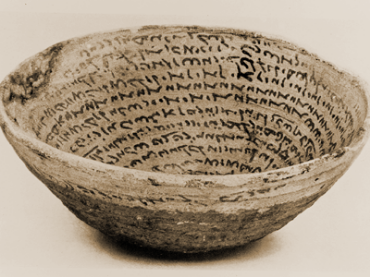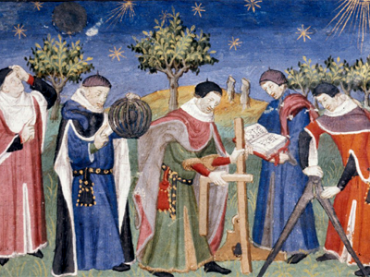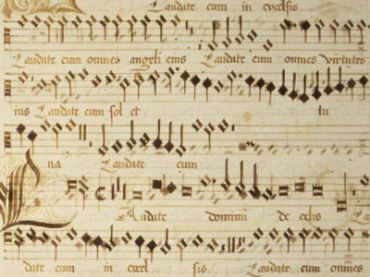History
From Empire to Republic
Essays on Ottoman and Turkish Social History
ISBN: 978-1-61143-137-7
A collection of early publications by renowned Ottoman historian Halil Inalcik.
$130.00
Studies in Ottoman History and Law
By Colin Imber
ISBN: 978-1-61143-138-4
A collection of historical essays by Colin Imber, professor of Turkish at the University of Manchester.
$169.00
In Quest of the Golden Apple
Imperial Ideology, Politics, and Military Adminsitration in the Ottoman Empire
By Pál Fodor
ISBN: 978-1-61143-139-1
A collection of essays by historian Pál Fodor on the Ottoman Empire in the sixteenth century.
$159.00
The Stag-Messenger Episode
By M. B. Ogle
Series: Analecta Gorgiana 765
ISBN: 978-1-61143-143-8
This article by M.B. Ogle is a demonstration of how the theory that the stag-messenger episode of Medieval literature is Celtic in origin has erred, and proposes it was of oriental provenance.
$37.00
The Constitutional Development of the Western Han Dynasty
By Telly Koo
Series: Analecta Gorgiana 769
ISBN: 978-1-61143-147-6
The Western Han dynasty was one of the most successful period in Chinese history. They drastically transformed the government from the ways of the Chou monarchs, which was the basis for subsequent dynasties.
$36.00
On the Date of Zoroaster
Series: Analecta Gorgiana 771
ISBN: 978-1-61143-149-0
Wide diversity prevails with regard to the date which Zoroaster lived. This diversity is largely due to incongruities in ancient statements on the subject. One can reasonably conclude that he lived between the seventh and sixth centuries B.C.E.
$35.00
The Dates of the Philosophical Sutras of the Brahmans
Series: Analecta Gorgiana 772
ISBN: 978-1-61143-150-6
The author is concerned with finding the dates of composition of the Buddhist doctrines the Sunyavada and the Vijnanavada. It was concluded that the Vijnanavada was arranged later than the Sunyavada.
$37.00
The Mystery of Fu-lin
Series: Analecta Gorgiana 773
ISBN: 978-1-61143-151-3
Several Chinese literary accounts attest that the mysterious country in the west called Fu-lin is declared to be identical with the country from ancient times known as Ta-ts’in. The author does not believe that they are one in the same.
$38.00
A brief sketch of an Argument respecting the nature of Scriptural, and the importance and necessity
By Anonymous
Series: Analecta Gorgiana 778
ISBN: 978-1-61143-156-8
The author advocates spiritual revivals. He describes the proper revival and says why America in particular stands to benefit from more revivals. He also warns of the negative consequences if there are too few revivals.
$34.00
A Short Narrative of the Extraordinary Work of Grace at Cambuslang in Scotland; in a Letter to a Fri
With Proper Attestations. Reprinted from the Edition of 1742
Series: Analecta Gorgiana 779
ISBN: 978-1-61143-157-5
This article introduces and reprints a letter relating the extraordinary conversion of a large number of sinners in Cambuslang, Scotland. Following are a series of attestations to the truth of the account by various Scottish ministers.
$36.00
A Brief Account of the Chaldee Targums
From the Latin of Leusden
By Anonymous
Series: Analecta Gorgiana 781
ISBN: 978-1-61143-159-9
The author describes the Chaldee Targums, recommending them to readers such that they can use the Targums to convert Jews who use them as evidence for their own religion. The author also analyses several Targums.
$34.00
The Life of the Rev. Rowland Hill, A. M.
By the Rev. Edwin Sidney, A. M. London, (printed.) New York, (reprinted,) 1834. 12mo.
By Anonymous
Series: Analecta Gorgiana 785
ISBN: 978-1-61143-163-6
The review reviews the life of Rev. Rowland Hill based on his published biography. Included is the minutia of his preaching career. Though a review, the article comments little on the text, more or less paraphrasing it.
$36.00
The Case of the Dissenters in a Letter Addressed to the Lord Chancellor
By Anonymous
Series: Analecta Gorgiana 786
ISBN: 978-1-61143-164-3
The article is a letter concerning the treatment of Dissenters in England. The writer objects to the nationalized Episcopacy for various injustices upon Dissenters. He asks for separation of church and state.
$36.00
Brief Memoir of the late Rezeau Brown, A. M.
By Anonymous
Series: Analecta Gorgiana 787
ISBN: 978-1-61143-165-0
The article presents the life of the late Rezeau Brown, a young man with religious aspirations and a poor constitution. The memoir relates the details of his studies and his dedication to missionary work.
$38.00
Cornelius Jansenius; and the Controversies on Grace, in the Roman Catholic Church
By Anonymous
Series: Analecta Gorgiana 789
ISBN: 978-1-61143-167-4
The author provides the biography of Cornelius Jansenius and describes his commentary, Augustinus, to explain Jansenius’s position on Grace in relation to Catholic doctrine. He concludes this history convicts the Catholic Church.
$35.00
The Church Establishment of England
By Anonymous
Series: Analecta Gorgiana 792
ISBN: 978-1-61143-170-4
The author reviews a pamphlet that criticizes the connection between church and state in England. He attacks the bias inherent in the system, the inefficiency of it, and its inability to fulfill its churchly duties.
$36.00
An Essay on the Invalidity of Presbyterian Ordination
By John Esten Cooke, M.D. Lexington. 8vo. Pp. 224. 1829
By Anonymous
Series: Analecta Gorgiana 794
ISBN: 978-1-61143-172-8
The article reviews and critiques an essay that attacks Presbyterian ordination. The reviewer points to logical and textual flaws in the argument, indicating the author’s incompetence.
$40.00
The Early History of Pelagianism
By Anonymous
Series: Analecta Gorgiana 796
ISBN: 978-1-61143-174-2
The author presents the history of Pelagius and his position against original sin. He reviews the positions for and against the doctrine of original sin, concluding that original sin cannot be proven true.
$39.00
The Annual of the Board of Education of the General Assembly of the Presbyterian Church in the Unite
By Anonymous
Series: Analecta Gorgiana 798
ISBN: 978-1-61143-176-6
The reviewer praises an annual, comprised of a series of articles, as valuable for students entering the ministry. The author advocates modesty, hard work and piety amongst other virtues.
$35.00
The Life of William Farel
Prepared from original authorities
By Anonymous
Series: Analecta Gorgiana 801
ISBN: 978-1-61143-179-7
The reviewer examines a biography of Protestant Reformer William Farel. The book describes Farel’s departure from Catholicism and contributions to the efforts of Swiss Reformation, Zuingle in particular. His trails and successes are described.
$35.00
The Racovian Catechism
By Anonymous
Series: Analecta Gorgiana 803
ISBN: 978-1-61143-181-0
The author provides the biography of Socianism founder Faustus Socinus. The article provides a partial translation of his posthumously compiled “Racovian Catechism” from the original Polish with the intention of revealing information about Socianism.
$36.00
Roman Catholicism
By Anonymous
Series: Analecta Gorgiana 804
ISBN: 978-1-61143-182-7
A scathing polemic against Roman Catholicism, the author uses logical and textual evidence to contradict Catholic rituals and beliefs.
$35.00
Hints on Colonization and Abolition
With reference to the black race
By Anonymous
Series: Analecta Gorgiana 806
ISBN: 978-1-61143-184-1
The author attacks American slavery but disputes the call to instant abolition and race-mixing. He advocates the American Colonization Society’s “back-to-Africa” approach as well as a slow, political approach to ending slavery in America.
$36.00
An Apology for Conforming to the Protestant Episcopal Church
Contained in a series of Letters addressed to the Reverend Benjamin T. Onderdonk, D.D., Bishop of the Diocese of New York. By Thomas S. Brittan.
By Anonymous
Series: Analecta Gorgiana 808
ISBN: 978-1-61143-186-5
The article reviews a text by a convert from Presbyterianism to the Protestant Episcopal Church. The reviewer is critical of much of the evidence the author uses and declares the book to be poor in quality and unoriginal.
$36.00
Quakerism not Christianity
Or Reasons for renouncing the doctrine of Friends. In three parts. By Samuel Hanson Cox, D.D., Pastor of the Laight Street Presbyterian Church; and for twenty years a member of the Society of Friends. Pp. 686.
By Anonymous
Series: Analecta Gorgiana 810
ISBN: 978-1-61143-188-9
The article reviews a book which is highly critical of Quakerism. The reviewer relates a brief history of Quakerism and proceeds to challenge Quaker doctrines. Quakerism is described as an incorrect form of Christianity.
$36.00
Filter by
Filter by price
Filter by manufacturer

